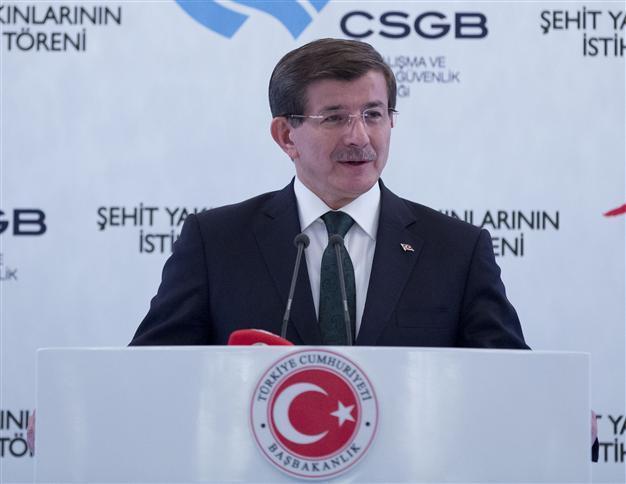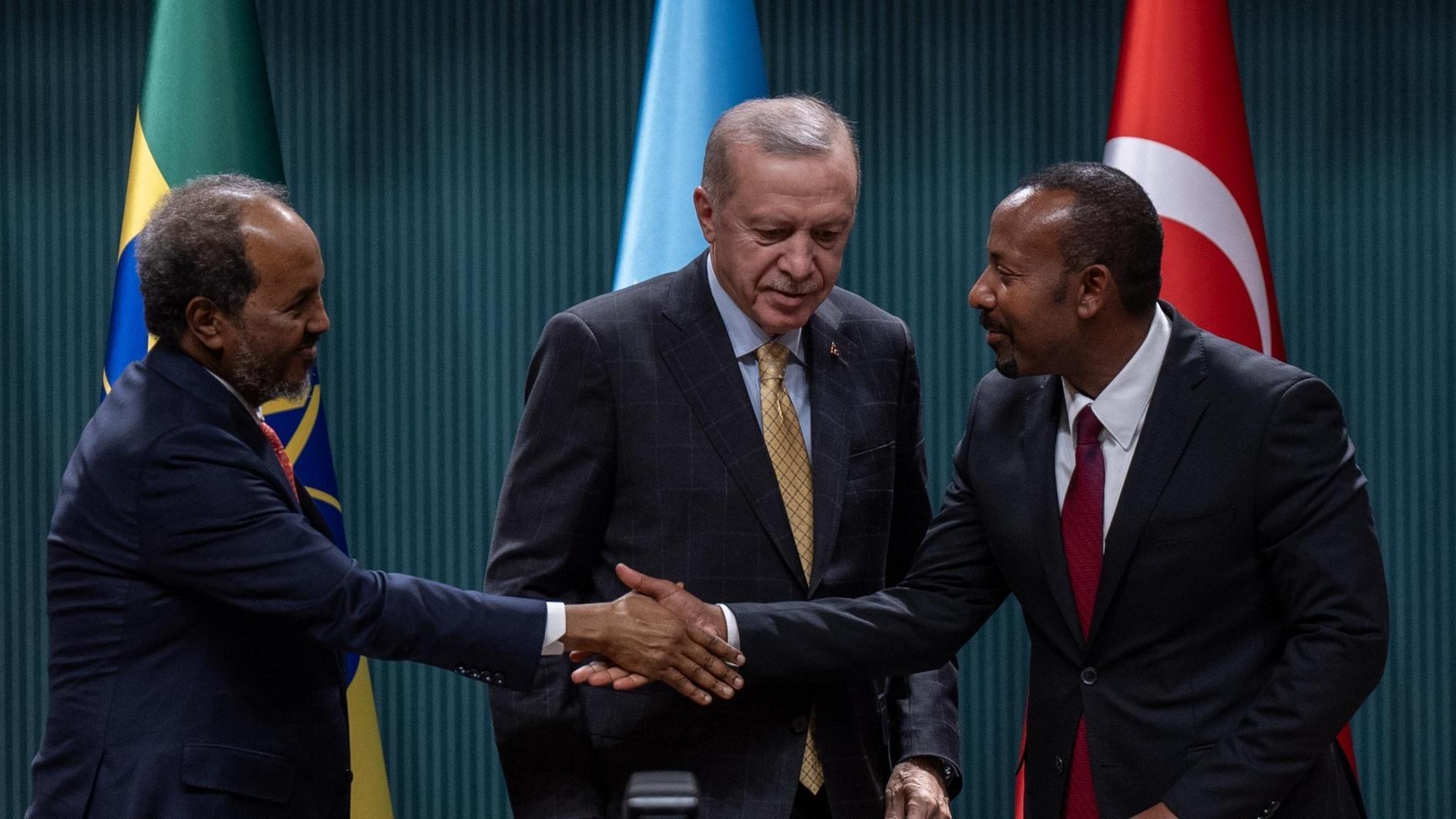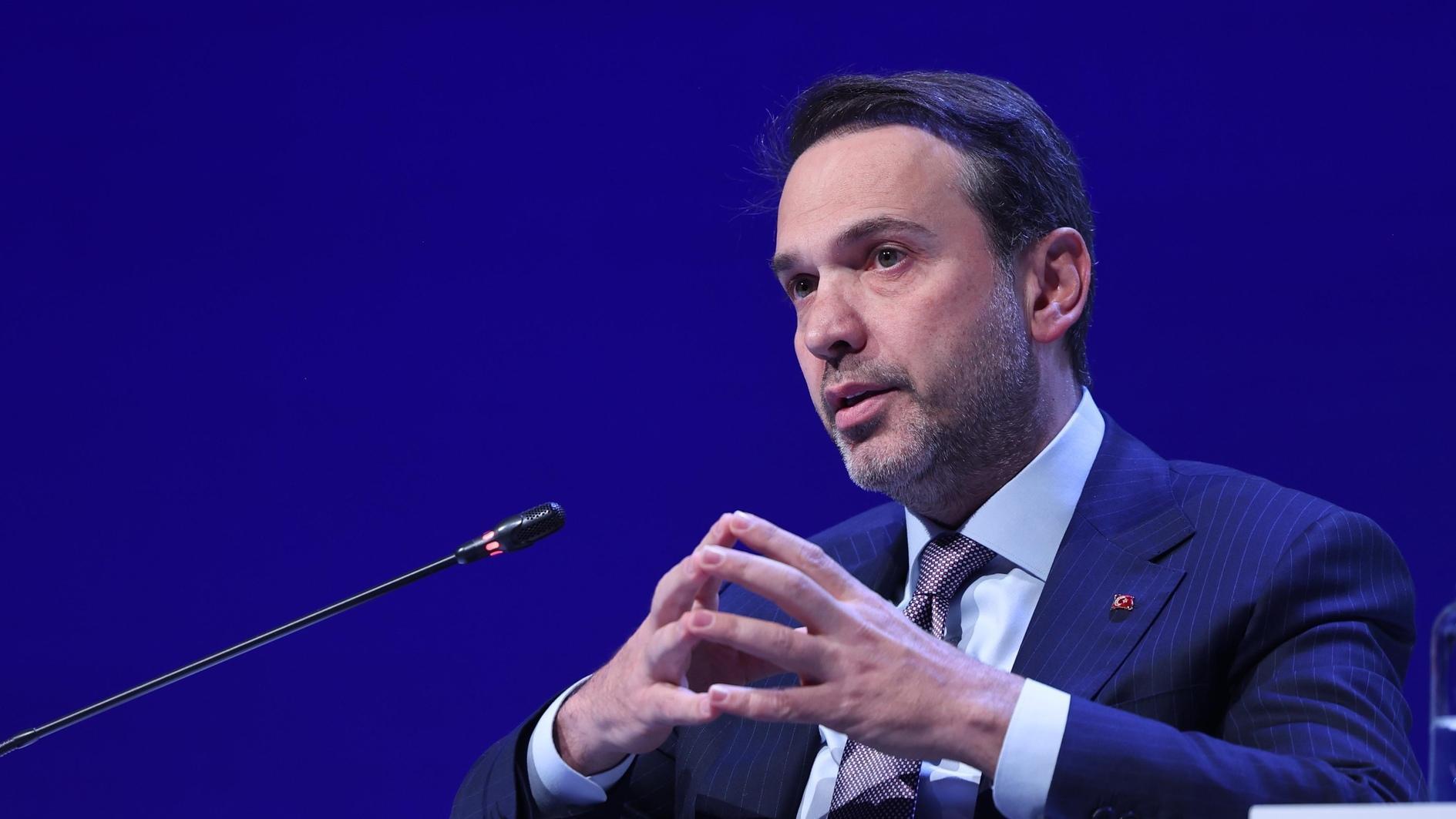Top court cannot protect my rights, Turkish PM says
ANKARA
 Prime Minister Ahmet Davutoğlu criticized the Constitutional Court’s ruling that found the Telecommunications Directorate’s (TİB) authority to close websites within four hours on the basis of national security, protecting public order or preventing crime “unconstitutional”.
Prime Minister Ahmet Davutoğlu criticized the Constitutional Court’s ruling that found the Telecommunications Directorate’s (TİB) authority to close websites within four hours on the basis of national security, protecting public order or preventing crime “unconstitutional”. “The Constitutional Court may be perceived as a hero of liberty by some circles, but it can’t protect my rights,” Davutoğlu said in a televised interview Oct. 2.
Somebody made a call on a Twitter account to attack Davutoğlu’s house during the Gezi Park demonstrations last year, the prime minister said, noting that the suspect was found later. The Constitutional Court cannot protect a family, he said.
“The Constitutional Court cannot guarantee freedom from insults for four hours,” Davutoğlu stated.
“It’s the easy way to talk about freedom in these cases. It’s not to be praised by some people, but the protection of each and every right of citizens that will put freedom on a real ground, that the judiciary should consider,” he said.
Stressing that he respects the Constitutional Court and its chairman Haşim Kılıç, Davutoğlu said he had appreciated when the top court had taken the right positions during earlier difficult times.
The prime minister cited that the Constitutional Court had protected the rights of an international company, Twitter, in its earlier decisions. The top court gave its ruling early while the local court proceeding was still underway, aiming to protect of rights of Twitter, Davutoğlu said.
“If compared to its own earlier rulings, as the Constitutional Court needed to make an early decision for Twitter in the case of human rights, the court should also give the right to the telecommunications authority to make an early decision to shut down [web sites] in four hours,” he said.
The extraordinary authority was granted to the TİB on Sept. 10 after an amendment to the Internet Law was passed at Parliament, sparking protests from Internet rights groups.
The main opposition Republican People’s Party had appealed to the Constitutional Court on Sept. 15 to annul the changes, arguing that they further restricted Internet use in Turkey and increased the government’s control of web traffic.
The restrictions also drew reactions from international organizations, who voiced concerns that the amendment threatened freedom of expression and the right to free and private communication.
The changes also authorized the TİB to store data in-house and to turn over data to relevant institutions upon a court decision, sparking concerns that Internet surfing would come under the full-time surveillance of the government.
















